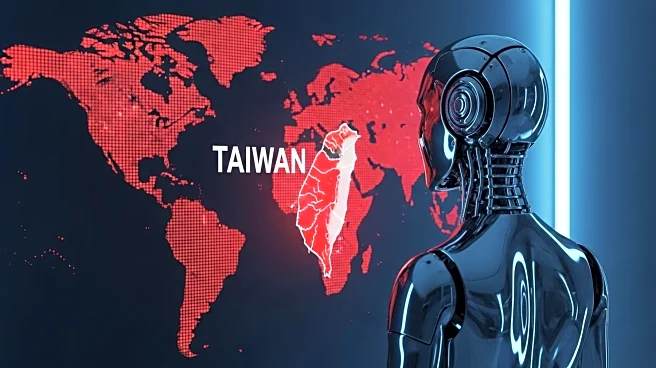What is the story about?
What's Happening?
A recent hearing by the House Oversight Committee highlighted the rapid advancements in artificial intelligence and China's aggressive posture towards Taiwan. Experts discussed the potential for AI to surpass human-level intelligence by 2029, a prediction made by Ray Kurzweil. The hearing emphasized China's ambition to dominate AI development and the strategic importance of Taiwan's semiconductor industry. Concerns were raised about the implications of a Chinese takeover of Taiwan, which could disrupt global chip supply and give China a significant advantage in AI deployment.
Why It's Important?
The potential for China to control Taiwan's semiconductor industry poses a threat to global economic stability, as these chips are crucial for manufacturing and technological advancements. The U.S. is urged to bolster its domestic chip production and consider legislative measures like the GAIN Act to prioritize chip sales to American companies. The geopolitical implications of AI advancements and chip supply disruptions could lead to a global depression, affecting industries reliant on advanced computing technologies.
What's Next?
The U.S. may intensify efforts to enhance domestic chip manufacturing and secure supply chains. Legislative actions, such as the proposed GAIN Act, could be revisited to ensure priority access to chips for U.S. companies. The ongoing geopolitical tensions may lead to increased diplomatic and economic strategies to counter China's influence in AI and semiconductor industries.
Beyond the Headlines
The ethical and strategic dimensions of AI development and deployment are becoming increasingly significant. The potential for AI to reshape industries and economies raises questions about international cooperation, regulatory frameworks, and the balance of power in technology leadership.
















